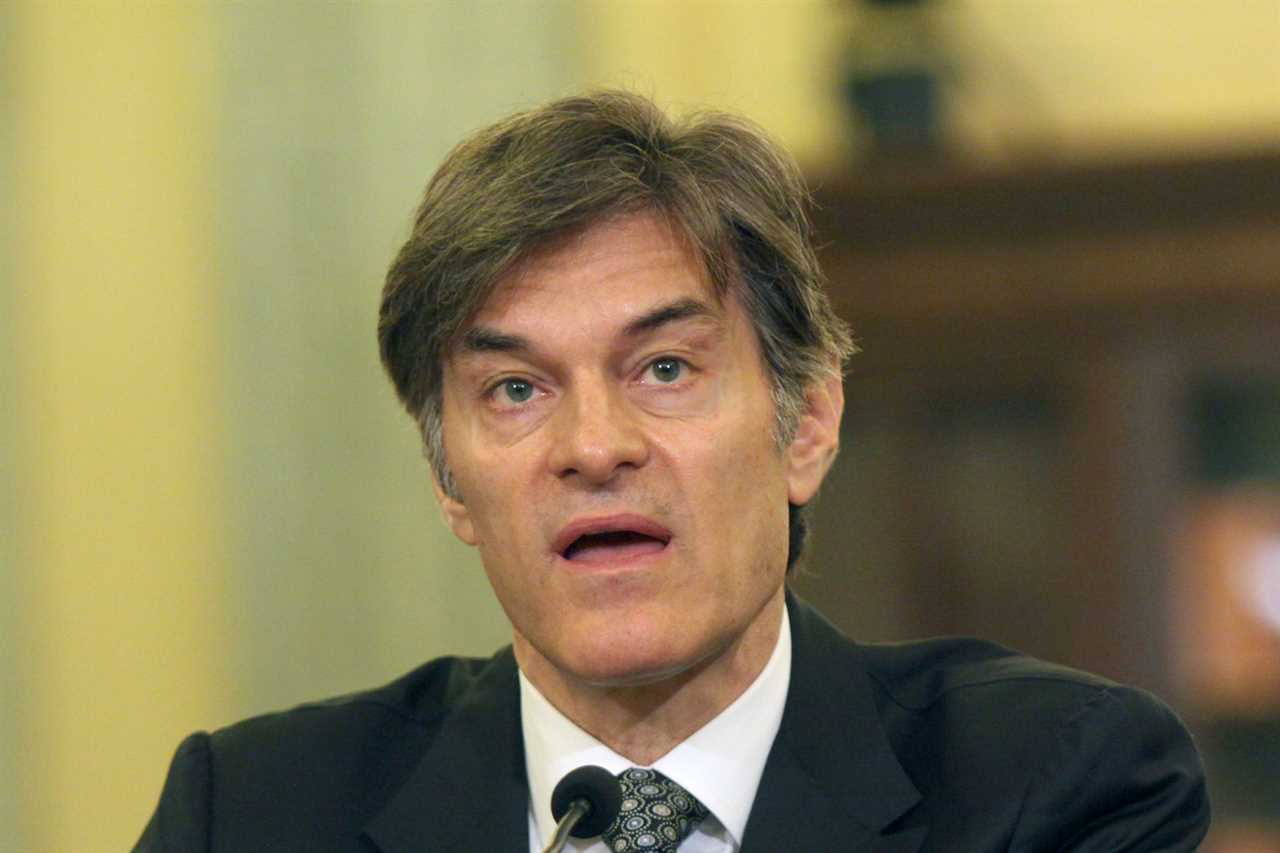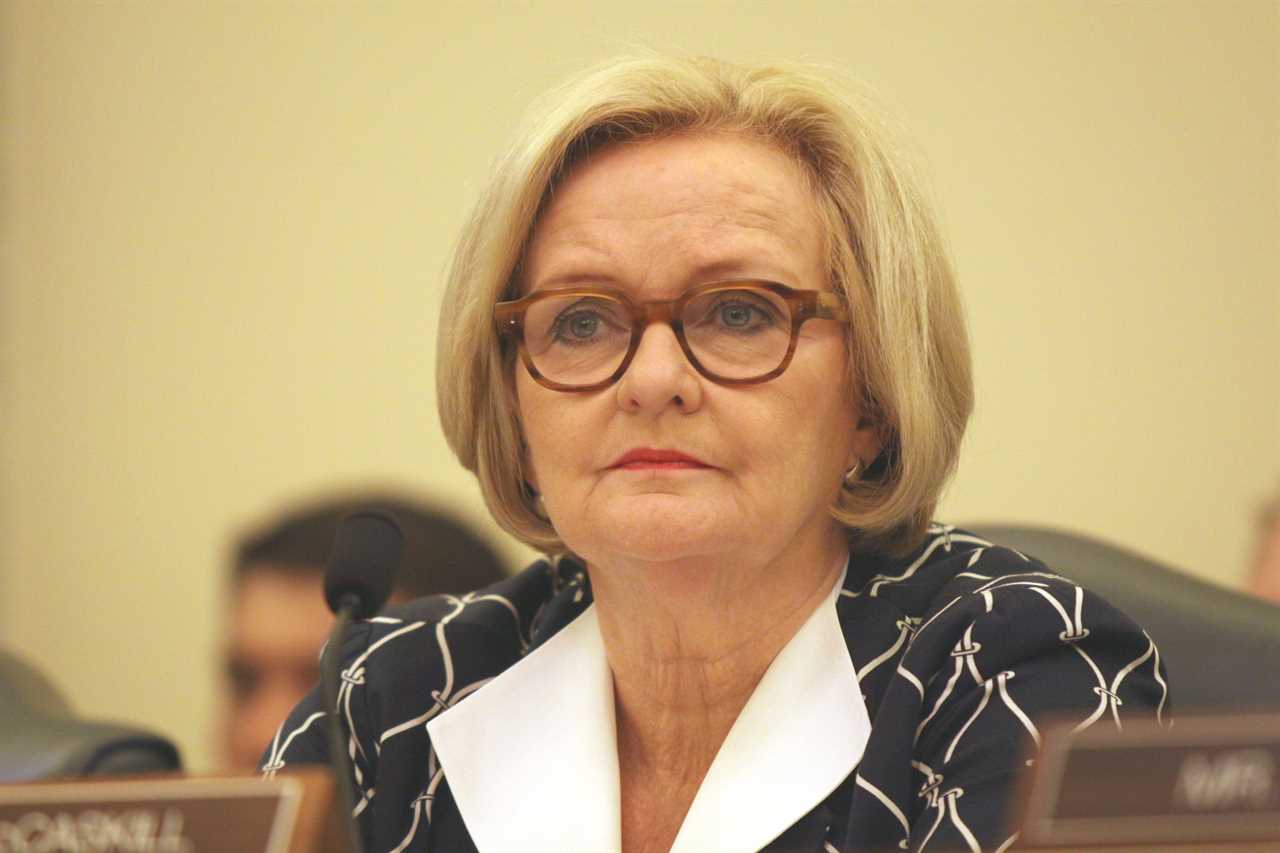
On a hot summer morning in June of 2014, Mehmet Oz, M.D. — or, as he is known to millions of adoring fans around the country, Dr. Oz — arrived on Capitol Hill ready to play the victim. Oz had been invited to Washington to testify before the Senate Subcommittee on Consumer Protection, Product Safety and Insurance during a hearing on false advertising in the diet and weight-loss industry. He presented his role clearly: As the victim of unscrupulous advertisers’ vicious attempts to twist his words to sell diet pills, he was perfectly positioned to help Congress curb the tide of deceptive advertising.
There was only one problem with the doctor’s plan. Inside the hearing room, the members of the subcommittee had cast him in a different role: not as the victim of scheming fraudsters but as the fraudster himself.
For the duration of the hour-long hearing, members of the subcommittee lined up one after the next to grill “America’s Doctor” for statements he made on “The Dr. Oz Show,” his daytime cable program on health and wellness, laying into him for his endorsements of the miraculous powers of green coffee extract and the fat-burning magic of raspberry ketone. From his spot behind the witness table, Oz refused to back down. He brandished print-outs of scientific studies to defend his statements about various weight-loss supplements and cited transcripts of his TV appearances to show how advertisers had taken his words out of context. At one point during the question-and-answer portion of the testimony, Sen. Claire McCaskill (D-Mo.), the subcommittee's chair, grew visibly agitated at Oz’s evasiveness, blurting out, “I’ve tried to do a lot of research in preparation for this trial and the scientific community is almost monolithic against you.” It was a hearing, not a trial, but McCaskill’s slip was telling: The committee was trying to put pseudoscience on trial, and Oz was the star witness.
Seven years after his dressing down on Capitol Hill, Oz is making a bid to return to Washington — this time to sit on the opposite side of the hearing room. On Tuesday, Oz announced that he’s entering Pennsylvania’s GOP primary race for U.S. Senate. Oz — who did not respond to a request to comment for this article — joins a field that’s been left wide open by the departure of Sean Parnell, an early Donald Trump-endorsed frontrunner who suspended his campaign in late November after losing a high-profile custody battle with his ex-wife.
By all the usual standards, Oz’s electoral prospects in Pennsylvania are slim. His ties to Pennsylvania are slight: a long-time resident of New Jersey, he attended the University of Pennsylvania’s medical and business schools as a graduate student and only began living and voting in Pennsylvania, where his wife’s family lives, in 2020. He has no real political credentials to speak of, aside from the occasional appearance on Fox News as a guest medical commentator. It remains to be seen whether Trump will endorse another candidate after Parnell’s early exit.
But with the GOP field in a deepening state of disarray, Oz might be just what the doctor ordered. Although conservative celebrities have by and large struggled to match Trump’s success in parlaying widespread name recognition into right-wing staying power — see, for instance, Caitlyn Jenner and Kanye West — Oz’s long and lucrative career as an advocate for alternative medicine, essentially one long campaign against the medical establishment by a man with his own media empire and an "M.D." after his name, makes him as reasonable a candidate as any in an increasingly populist party. And his performance in the hearing itself — relentlessly pushing back; blaming his critics rather than taking responsibility for his own misinformation — sounds eerily like practice for politics in 2021.
In the pre-pandemic world of 2014, Oz’s testimony sounds a bit like the desperate waffling of a high school student who just got caught cheating on a science test. At one point during the hearing, when McCaskill confronted him with his claims about a pill that could “literally flush fat from your system,” and “push fat from your belly,” Oz blamed what today might be called “cancel culture” for policing what he could or couldn’t say on his show.
“When I feel as a host of a show that I can’t use words that are flowery, that are exultatory [sic], I feel like I’ve been disenfranchised, like my power’s been taken away,” said Oz. “You don’t want to be on a pulpit talking about how passionate you are about life and thinking, ‘Well, if I use that word it’s going to be quoted back to me.’”
Oz was one of six experts invited by the subcommittee to testify during the hearing, but once all the experts had delivered their prepared testimony, the members’ attention fell squarely on Oz, by far the most famous person in the room that day.
The committee members focused in particular on Oz's tendency to use supernatural vocabulary to describe the weight-loss powers of generic, over-the-counter weight-loss supplements. To begin her line of questioning, McCaskill recited a litany of claims that Oz had made about unproven supplements on the Dr. Oz Show. “‘You may think magic is make-believe, but this little bean has scientists saying they’ve found the magic weight-loss cure for every body type — it’s green coffee extract,’” said McCaskill, quoting Oz. She continued by reciting Oz’s claims about the “miracle” powers of raspberry ketone and the body-fat-busting powers of garcinia cambogia, an over-the-counter supplement made from the ground-up peel of a yellow, pumpkin-like fruit native to Southeast Asia.

The way Oz portrayed it, he was using flowery language to express his enthusiasm for promising new supplements, and then he himself was victimized by unscrupulous manufacturers: Companies that used his name, likeness and statements to sell name-brand versions of the generic supplements that he endorsed.
The members showed only limited sympathy for his complaints, pointing out that he was the one pumping those substances up in the first place. “We all have the experience as elected officials of [having] any word that can be taken out of context,” said Sen. Amy Klobuchar (D-Minn.) with a wry smile. “But at the same time, in addition to being a celebrity, you're a doctor, and I believe that doctors have this duty to give [your audience] the best evidence.”
Midway through the hearing, after lengthy lines of questioning from McCaskill and Klobuchar, Oz came under cross-examination by Sen. Dean Heller, a Republican from Nevada. (Heller, who lost his Senate seat in 2018, is now running for governor of Nevada.) Heller cut straight to the point, asking Oz whether or not he believed in the existence of a miracle pill that causes consumers to lose weight.
“There’s not a pill that's going to help you, long-term, lose weight, live the best life without diet and exercise,” Oz responded.
“Do you believe there’s a magic weight-loss cure out there?” said Heller.
Oz stammered. “If you’re selling something because it’s magical, no,” he said. “If you’re arguing that it’s going to be magic because if you stop eating carbohydrates you’re going to use a lot of weight, that’s a truthful statement.”
I asked Matthew Eisenberg, an expert on health economics and policy, at the Johns Hopkins Bloomberg School of Public Health, to review Oz’s testimony. He said that Oz's rhetorical sleights-of-hand — disclaiming "magical" while defending "it's going to be magic" — are a common feature of deceptive advertising in the weight-loss industry. And despite Oz's careful parsing of claims like that, several of his hearing statements ran afoul of both scientific and regulatory consensus, said Eisenberg. In his written testimony, says Eisenberg, Oz clearly violated the Federal Trade Commission’s guidance to dietary supplement companies when he referred to a pill’s ability to “melt” fat.
“The scientific consensus is that pills cannot do that, and the regulatory consensus is [the same],” said Eisenberg. “The FTC has said no product can say in their advertisement that a product burns or melts fat.”
Neither the FTC’s recommendations nor Congress’ scorn has done much to deter Oz, whose lucrative empire has thrived despite being repeatedly condemned in mainstream medical circles for making unsupported claims about diet and weight-loss products. In 2013, a team of researchers at Georgetown University analyzed the various health recommendations made on Oz’s show, finding that about 78 percent of those recommendations “did not align with evidence-based medical guidelines, society recommendations, or authority statements.” In 2018, without admitting liability, Oz agreed to pay a $5.25 million settlement in a class-action lawsuit alleging that he misrepresented the efficacy of two weight-loss pills, which he had referred to on his show as a “revolutionary fat buster” and “magic weight-loss cure.”
Oz’s critics characterize him as a charlatan — and early in the hearing, McCaskill came just short of doing exactly that. When Oz defended his decision to peddle unproven weight-loss drugs by noting that he had also promoted the healing power of prayer, McCaskill shot back, “But you don’t have to buy prayer — prayer is free.”
“Yes, prayer is free,” said Oz. “That’s a very good point.”
Chalking Oz’s endorsements of weight-loss pills up to simple greed, though, misses something critical about his enterprise. During the question-and-answer portion of the hearing, Oz repeatedly noted that he had never sold any specific dietary supplements through his show, nor has he profited directly from the sale of the supplements that he endorsed. Although there is little doubt that Oz has profited handsomely over the years from his audiences’ credulity — his show has been on-air for 13 seasons and he has written eight New York Times bestsellers — he didn’t make money from selling diet pills. Asked by Klobuchar why he chose not to sell products himself, Oz said, “A doctor shouldn’t sell products. … You wouldn’t trust me if you came to me for advice and I said ‘Oh, you’d got a stubbed toe here, take my version of a solving cream.’”
But the efficacy of the pills that he endorsed may not really matter to the core of his enterprise. When pressed by McCaskill about his support for “miracle” weight-loss pills, Oz conceded, “I recognize that oftentimes, [my claims] don’t have the scientific muster to present as fact. … My job, I feel, on the show is to be a cheerleader for the audience, and when they don’t think they have hope, or when they don’t think they can make it happen, I look everywhere for any evidence that might be supportive to them.”
Despite the subcommittee’s focus on diet supplements, the hearing got at something deeper about what Oz’s real product is: not weight-loss pills at all, but rather the promise of an alternative reality.
Seven years after the Senate put Oz’s brand of misinformation on trial, the court of public opinion has returned a not guilty verdict. Far from posing a challenge to Oz’s political credibility, the deluge of pseudoscience and misinformation that emerged from the pandemic has proved that Americans are more eager than ever to buy what he is selling. Huge swaths of the country are turning away from a medically effective vaccine and embracing random treatments touted by the politicians they like. Oz himself offers a diagnosis of the country’s political ills that is primarily metaphysical rather than material. “I’m running for the Senate to empower you to control your destiny, to reinvigorate our great nation, and to reignite the divine spark that we should always be seeing in each other,” wrote Oz in the Washington Examiner.
Oz hasn’t yet offered a policy prescription for relighting the nation’s divine spark.
----------------------------------------
By: Ian Ward
Title: When Dr. Oz Went to the Senate
Sourced From: www.politico.com/news/magazine/2021/12/01/dr-oz-senate-campaign-523562
Published Date: Wed, 01 Dec 2021 04:31:38 EST






